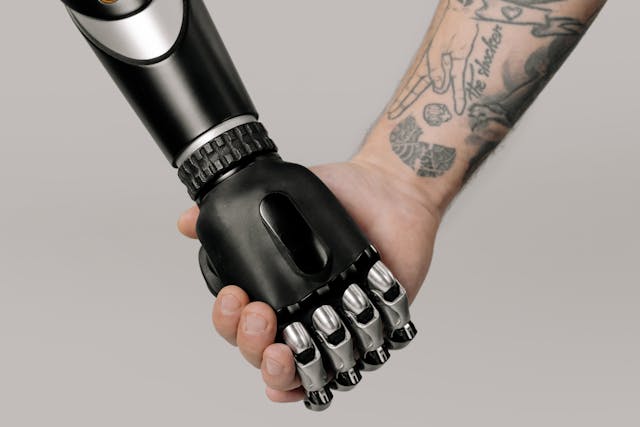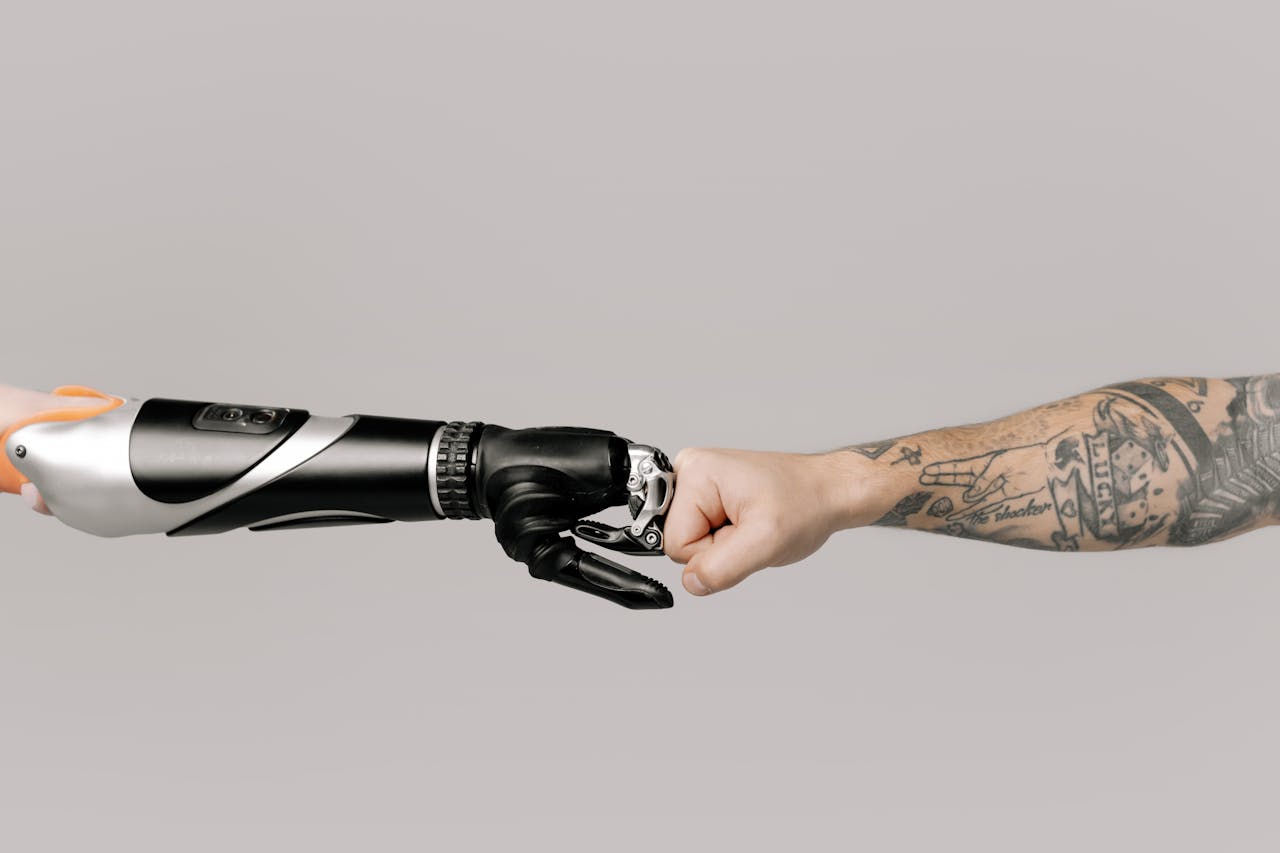The rise of AI in recruitment is one of the most significant shifts the hiring world has ever seen. Artificial intelligence is transforming how companies attract, assess, and hire talent making the process faster, smarter, and more data-driven than ever before. For job seekers, this means applications are being reviewed by algorithms before they reach human eyes. For recruiters, it means spending less time on manual tasks and more time building relationships. And for companies, it means better matches, reduced costs, and more diverse teams.
AI is already embedded in many parts of the hiring process, from resume screening and candidate matching to chatbots that handle first-round communication. But with these opportunities come new challenges: candidates must adapt their applications for AI-driven systems, recruiters must learn new tools, and companies must be careful to avoid biased algorithms.
In this guide, we’ll explore the rise of AI in recruitment in detail. We’ll cover how it speeds up hiring, improves candidate experience, reduces bias, and reshapes the roles of recruiters and job seekers. By the end, you’ll understand exactly what this technology means for you whether you’re applying for your next role, managing a talent pipeline, or leading a global hiring strategy.
The Evolution of AI in Recruitment
Recruitment has always been about connecting people with opportunities, but the way it happens has changed dramatically over the years. In the past, companies relied on job boards, referrals, and stacks of printed resumes. Applicant Tracking Systems (ATS) were the first wave of technology, helping recruiters keep track of candidates, but they were often clunky and limited to keyword matching.
Fast forward to today, and AI has revolutionized this space. Instead of just storing resumes, modern tools actively “read” applications, identify relevant skills, and predict candidate success. Machine learning models can analyze huge volumes of data—education, experience, online activity, and even cultural fit—to create shortlists in minutes.
Companies are adopting AI at lightning speed. A LinkedIn survey showed that 76% of recruiters believe AI’s impact on recruitment will be significant in the next five years. Why? Because the global talent shortage is real 93% of employers say they struggle to find the right skills. AI provides a way to find, filter, and connect with top candidates faster than traditional methods ever could.
How AI Speeds Up Hiring
Hiring has traditionally been slow. Recruiters often spend weeks sifting through applications, scheduling interviews, and chasing feedback. AI changes this by automating repetitive tasks. Resume screening, interview scheduling, and even initial candidate outreach can now be handled by algorithms and bots, saving recruiters hours of administrative work.
For companies, this means a dramatic reduction in time-to-hire. Some organizations report cutting hiring time by up to 75% after adopting AI-driven systems. This speed gives them a competitive edge—securing talent before other companies make an offer.
For candidates, faster hiring can be a double-edged sword. On one hand, they receive quicker responses and clearer updates. On the other, applications that aren’t optimized for AI risk being filtered out before a human recruiter ever sees them. This is why tailoring resumes with relevant keywords, clean formatting, and clear skill descriptions has never been more important.

Smarter Candidate Matching
One of the most powerful uses of AI in recruitment is smarter candidate matching. Instead of recruiters manually comparing resumes to job descriptions, AI can scan profiles, identify key skills, and even uncover transferable skills candidates didn’t highlight themselves. This helps companies build better-quality shortlists and reduces the risk of a poor hire.
For job seekers, this can be a game-changer. AI might surface them for roles they hadn’t considered, based on their skills, career trajectory, and potential. For example, a software developer with experience in data analysis might be flagged for a data science role they hadn’t applied for.
But there’s a challenge: AI can only work with the information it’s given. Candidates with incomplete resumes, missing skills on LinkedIn, or vague job descriptions risk being overlooked. That’s why building a strong, clear online presence is crucial. In today’s job market, visibility equals opportunity.
Improving the Candidate Experience
The hiring process has often been frustrating for candidates. Applications disappear into “black holes,” recruiters don’t reply, and feedback is rare. AI is changing this with tools designed to make the process more transparent and engaging.
Chatbots can answer FAQs, provide status updates, and even schedule interviews around the clock. Virtual assistants ensure that candidates are never left wondering where they stand. This builds trust and makes the employer brand stronger.
However, AI can’t replace human empathy. Candidates still value personal connections, thoughtful interviews, and real conversations with recruiters. The best companies use AI to handle the basics, while recruiters focus on building meaningful relationships that technology can’t replicate.
Bias, Diversity, and Fairness
One of the most exciting promises of AI in recruitment is reducing bias. Traditional hiring often suffers from unconscious bias recruiters may (consciously or unconsciously) be influenced by factors like gender, age, or background. AI can level the playing field by focusing on skills, experience, and data-driven indicators of success.
For candidates, this means fairer evaluations and more opportunities, especially for underrepresented groups. For companies, it means access to a more diverse pool of talent something that’s proven to boost creativity and performance.
But AI isn’t flawless. If the data used to train algorithms is biased, the results can reflect those same biases. For example, if historical hiring data favored certain demographics, AI could inadvertently reinforce those patterns. This is why companies must use diverse datasets, regularly audit their tools, and balance automation with human oversight.

What Recruiters Need to Learn
AI isn’t here to replace recruiters it’s here to change their role. Instead of spending hours on manual resume screening, recruiters can now focus on strategy, branding, and relationship-building. This shift means recruiters need to develop new skills.
First, they must become comfortable with AI tools—knowing how to use them, interpret their recommendations, and spot limitations. Recruiters who combine tech skills with people skills will be in the highest demand.
Second, recruiters need to double down on the human side of hiring. While AI handles data, recruiters must focus on empathy, negotiation, and storytelling—skills that AI can’t replicate. Building strong employer brands and creating meaningful candidate experiences are now key parts of the job.
What Job Seekers Must Do
For candidates, the rise of AI in recruitment means learning how to “speak the language of machines.” Resumes must be clean, keyword-rich, and ATS-friendly. Online profiles like LinkedIn should be complete and regularly updated. Visibility across professional networks is essential.
Candidates must also showcase skills that AI struggles to measure—creativity, leadership, problem-solving, and adaptability. Highlighting real achievements, outcomes, and impact makes a resume more compelling both to algorithms and to recruiters.
Finally, job seekers should embrace digital fluency. Knowing how recruitment technology works, and adapting to remote interview formats, shows employers they’re ready for the modern workplace. Those who resist will risk being left behind.
The Future of AI in Recruitment
So, where is this all heading? Experts predict that within the next decade, nearly every stage of recruitment will involve some form of AI. From predictive analytics that forecast employee success to sentiment analysis during interviews, the integration of technology will only deepen.
For global companies, AI will make cross-border hiring easier. Tools can scan talent pools across continents, match skills to global projects, and help manage remote-first teams more effectively.
But the future isn’t AI-only. The most successful recruitment models will combine AI efficiency with human empathy. Recruiters will act as strategists, advisors, and relationship-builders—using AI to find talent and human judgment to secure it. For candidates, this means preparing for a hybrid world: one where AI evaluates their skills, but humans evaluate their story.
Conclusion
The rise of AI in recruitment is reshaping hiring for companies, recruiters, and candidates alike. It makes hiring faster, smarter, and more data-driven but it also introduces new challenges. Recruiters must learn new tools and focus on human connections. Candidates must adapt their applications for AI and showcase skills technology can’t measure.
In the end, AI isn’t about replacing people it’s about helping them work smarter. For recruiters, it means less time on admin and more time building relationships. For candidates, it means more opportunities and a fairer shot. And for companies, it means stronger teams and better results.
The real question is not whether AI will change recruitment it already has. The question is: are you ready to adapt?
FAQ
1. How is AI used in recruitment today?
AI is used for resume screening, candidate matching, chatbots, interview scheduling, and even predictive analytics to forecast job success.
2. Will AI replace recruiters?
No. AI automates repetitive tasks, but recruiters are still needed for relationship-building, negotiation, and cultural evaluation.
3. How can candidates optimize for AI recruitment systems?
Use ATS-friendly resumes, add keywords from job descriptions, complete LinkedIn profiles, and clearly showcase skills and achievements.
4. Does AI really reduce bias in hiring?
Yes, but only if it’s designed and monitored carefully. AI can reduce unconscious bias, but if trained on biased data, it may reinforce existing problems.
5. What skills should recruiters develop in the AI era?
Recruiters should focus on tech fluency, employer branding, candidate experience, and strong communication skills.
6. What does AI mean for job seekers in the long term?
Job seekers must be digitally fluent, adaptable, and proactive. They should embrace AI as part of the process and focus on showcasing human skills.
Sources
Role of artificial intelligence in employee recruitment: systematic review and future research directions — AI recruitment
AI Recruitment Statistics 2025 (Worldwide Data & Insights) – demand sage
The Rise of AI in Recruitment Process: How companies are using AI for hiring — The Economic Times
AI to ‘level playing field’ in recruitment: HRD Australia




